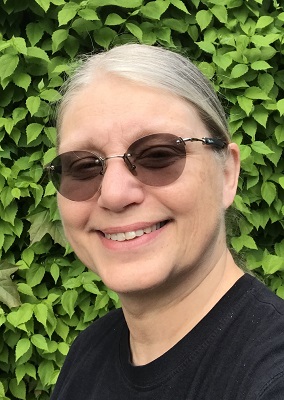Interview with Ninni Carlsund Levin

Tell us a bit about yourself and your educational background; what inspired your interest in your field?
My name is Ninni Carlsund. I have a PhD in Theoretical Physics and am now an Associate Professor (Lektor) at the department of Mathematics at KTH. I started teaching as a teaching assistant here many years ago and apart from some guest visits in the US, I am still working here at KTH.
Receiving the KTH Pedagogical Prize must be exciting. What did you receive the prize for, and what are your plans regarding future steps?
Being positively rewarded encourages anyone to continue learning more in that field and I try to use that in my teaching.
When the Covid-pandemic suddenly caused all on-Campus activities to be changed into distance education, we all had to work out new solutions for our courses that would give a good study environment for our students. Many new ways to do lectures, exercises, labs, presentations and examinations were investigated.
Even though some new things are tried out every year, the amount of new ideas that has been implemented and tested at KTH by all of us during these last two years is huge.
Some of all these ideas have turned out not so good, while others have worked much better than expected. So in the future when we are back again at KTH we will be using the best of both distance education and our traditional one. All of us working together physically on Campus gives another dimension and support that distance education still cannot give.
What is your research about?
My main focus during the pandemic has been on keeping the students active. Making them try out things, do things even when I cannot see them in Zoom. Make them dare to answer questions live, even through Zoom. And convince them that nothing bad happens even if the answer sometimes is wrong. Actually, that is often even better from a pedagogical point of view: "Why is this answer, what at first seems right, actually wrong?", since that requires analysis!
What are the biggest challenges of your work/research?
The biggest challenge for me has been, as for most of us, how to find time for all the projects that I want to do.
Are you planning to develop your research in new directions?
I think that a lot of the material that we have developed these last years will be an excellent base for study material for the students. Either as a way to prepare for a live lecture or repeat afterwards or used as a way for students to refresh material from other earlier courses required for the course they are following right now. But during the actual course they are taking it is important that there is a lot of live interaction with the teachers.
What advice would you give to youngsters interested in becoming scientists?
An important factor for attracting young minds is to keep our students that have started at KTH, interested long enough to stay and fulfill their studies here.
It is important that we all teachers/researchers at KTH take the time and effort to show our students all the interesting things we do here at KTH (and elsewhere). We must use our time to present both our research and the course content in a way such that the students see it. Having interested students is the absolute best way to attract more good students.
How could we attract more young minds into the field of sciences? Are there any actions taken by your work environment about it?
An important factor for attracting young minds is to keep our students that have started at KTH, interested long enough to stay and fulfill their studies here.
It is important that we all teachers/researchers at KTH take the time and effort to show our students all the interesting things we do here at KTH (and elsewhere). We must use our time to present both our research and the course content in a way such that the students see it. Having interested students is the absolute best way to attract more good students.
Is it important for you to communicate your research to the world? If yes, why and how do you do that?
Communicating to the world about all the research that is being done is very important, and the first step is that we do it here at KTH.
